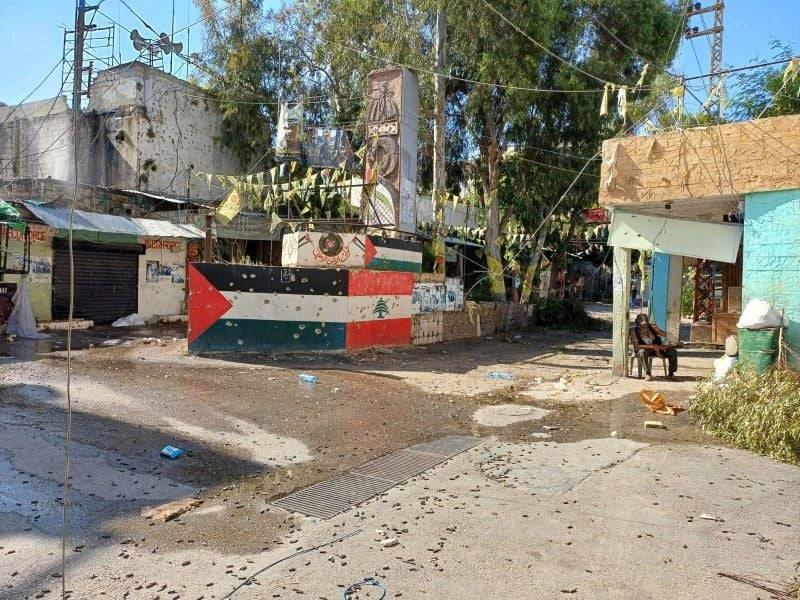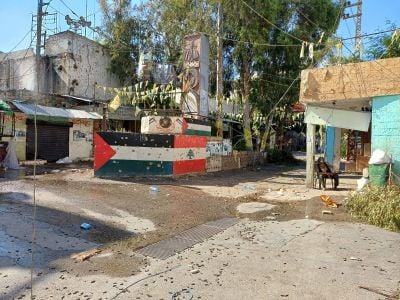
One of the entrances to Ain al-Hilweh Palestinian refugee camp, South Lebanon. (Credit: Mountasser Abdallah)
BEIRUT — In a brief statement issued Friday evening, the Saudi Arabian embassy in Beirut called on its nationals to leave Lebanon quickly and avoid areas of armed conflict, without specifying the areas it advised its citizens to avoid.
The Saudi diplomatic mission also stressed "the importance of respecting the travel ban on Lebanon." It was followed Saturday by Kuwait, which issued an advisory calling on Kuwaitis in Lebanon to remain vigilant and avoid "areas of security unrest," though without asking them to leave the country.
Deadly armed clashes have occurred in recent days in the Ain al-Hilweh Palestinian refugee camp, located on the outskirts of Saida, South Lebanon.
Are the Saudi warnings directly linked to the situation in Ain al-Hilweh? Will they have repercussions on Lebanon, given that relations between Riyadh and Beirut have been strained in recent years?
L'Orient-Le Jour interviewed Michael Young, editor of Diwan, the blog of the Malcolm H. Kerr Carnegie Middle East Center, on this subject.
Is Saudi Arabia's decision to call on its citizens to leave Lebanon quickly linked solely to the fighting in Ain al-Hilweh, or is it motivated by other considerations?
Saudi Arabia's request is not just related to the fighting in Ain al-Hilweh. Many believe it could be linked to a possible Israel-Saudi agreement.
The Ain al-Hilweh affair goes beyond the camp, insofar as it reflects a certain regional tension. Iran is trying to accumulate Palestinian cards and strengthen its position, as part of a possible confrontation against normalization between Arab countries and Israel.
If an Israel-Saudi agreement is signed, Riyadh will certainly fear the reaction against its citizens in a country like Lebanon.
What consequences might such a decision have for Lebanon, particularly in economic terms?
Let's not exaggerate. For years, the Gulf states have been reluctant to let their citizens travel to Lebanon. So there will be no major impact from Riyadh's call (Friday) for its citizens to leave the country. But this call is certainly confirmation of a policy that has been in place for years.
The Saudis have repeatedly shown an official lack of interest in Lebanon. The impact of their appeal should therefore not be exaggerated, but rather seen as confirmation of this attitude.
Nevertheless, it is a blow to the level of trust that Arab countries can place in Lebanon. It's worrying to see this resistance on the part of Arab countries to consider that Lebanon is in a normal situation.
Can we expect renewed fighting in Ain al-Hilweh, or other security blunders in the coming days or weeks?
If the clashes at the Ain al-Hilweh camp are linked to regional calculations, we should certainly expect other security blunders.
What happened in Ain al-Hilweh is still unclear, and theories abound. But if these incidents had a regional aim, then we shouldn't be surprised if tensions return to the camp.
Anything is possible. Ain al-Hilweh is the nerve center of the Palestinian presence in Lebanon, and it is here that the groups and parties opposing Fateh are strongest. It is therefore the most likely place for new incidents to occur.

